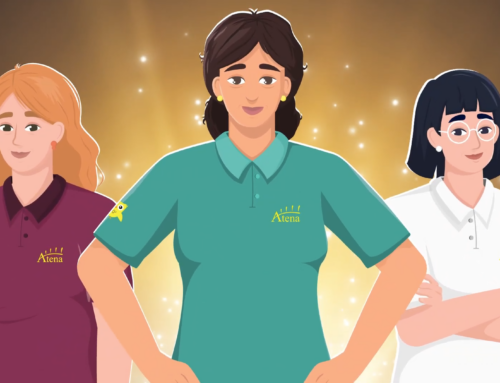In previous articleswe have discussed the possibility of care allowances for 24-hour home care in German-speaking countries. Now we look at how the care allowance works in the land of tulips, windmills, bicycles and clogs, where working caregivers need to speak English.
The Netherlands is one of the countries that offer its inhabitants above-standard living conditions, high salaries, well-maintained infrastructure. The social security system, which is elaborate in detail, is no exception. Also in connection with 24-hour home care the system is generous and has large scale of allowances available.
First place
The Netherlands was the first country to introduce so-called universal social insurance for long-term care. It happened in 1968. It was originally intended for the needs of domestic and institutional care for the mentally handicapped, but was later expanded to include home health care in 1980.
Who is eligible?
If your relative needs continuous supervision and care 24/7, such care is covered by the Long-Term Care Act (WLZ) in the Netherlands. This includes patients who are unable to function on their own in normal life. Under this law, a person entitled to care:
- has a chronic physical or psychogeriatric illness (dementia), disorder or disability,
- needs a permanent care and constant supervision day and night,
- needs care permanently (for life).
Who provides the subsidies?
The SVB (Sociale Verzekeringsbank) is the institution that covers the entire social security system in the Netherlands: old-age pensions, child benefits and home care allowances. This is covered by the so-called personal budget (PGB), which ensures the organisation of the necessary care. It can be used by seniors and their family members to cover the expenses. The amount is calculated on the basis of the individual needs of each patient. They can use it to pay for the care providers they choose. The allowance can be used for the services of several providers at the same time – home caregiver, external or domiciliary health service,… It takes at least six weeks to approve a personal budget, but the average is two months. The basic amount valid from 1. 1. 2023 is 3975,40€ net per month. The personal budget can exceed up to 6 000€.
How to get subsidies?
To get this care allowance for your relative, you need to have a statementthat their medical condition cannot be managed without 24-hour care. The decision is issued by the Care Assesment Centre (CAK – Centraal Administratie Kantoor). It first checks whether the person is entitled to caregiving. The application must be made via the website, in person or over the phone. In addition to the person in need of care, a family member or even caregivercan apply for the care allowance. But they must have a power of attorney. The application must be accompanied with details of medical condition and medical reports from the doctor about the progress, condition and treatment of the illness. If the situation requires, the patient is examined by a doctor at home or in hospital. The CAK will subsequently send a decision on whether the request has been granted. If so, the amount of the personal budget is indicated there.
The CAK is the Dutch institution responsible for the reimbursement of medical expenses for persons covered by the Health Insurance Act. It is an intermediary between healthcare providers, patients and health insurance companies. They process claims for reimbursement and ensures that the amount paid to the provider is correct.
What does the amount depend on?
The budget is being calculated according to the severity of the diagnosis by the CIZ (Centrum Indicatiestelling Zorg). They are responsible for complying with the Dutch Ministry of Health’s guidelines on eligibility for care. It determines both whether a person is eligible for long-term care and which care profile is most appropriate for them. If the person has multiple health limitations, they find out which one is the most severe. Care profile actually describes what type of care the patient needs in relation to their health condition. Care profiles of the elderly are identified by the number and letters VV (Verpleging en Verzorging). Each of these has a specific amount associated with it. The amount of the personal budget under each profile is shown in the table below. The profiles above refer to 24-hour care.
The CIZ is the Dutch institution responsible for determining entitlement to care under the Dutch Health Insurance Act, the extent and type of necessary care by the needs of the individual. They issue a certificate stating the extent of the care required.
Care profiles include assistance with essential activities of daily living such as bathing, dressing, eating, as well as nursing care. Specialized care enables seniors to live at home for as long as possible, safely and comfortably. It meets their specific needs.
| Mark | Care profile | Gross annual allowance |
| 5VV | Intensive care in connection with dementia | 59 013 € |
| 6VV | Intensive care related to physical or cognitive impairment | 59 013 € |
| 7VV | Very intense care due to specific disorders (frequent behavioural problems) | 73 922 € |
| 8VV | Very intense care due to specific disorders with an emphasis on nursing | 88 224 € |
As you can see, the Netherlands is indeed a country with a high standard of living that thinks of its citizens even during the autumn of their lifes. If you are interested in working in a developed country, we will be happy to help you. We have a lot of vacancies to choose from with interesting remuneration.







